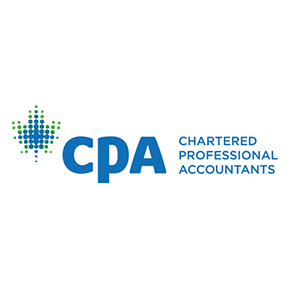Part of our collective professional responsibilities is to attend networking events in order to find business. Some of us are pretty good at it, most of us are not. For a variety of reasons, professionals come up empty handed when it comes to business development in this pseudo social/professional arena. The three elements of success are preparation, curiosity, and self promotion. Let’s discuss the reasons why many fail, and focus on ways to turn losing into winning.
Preparation
First, answer this question yes or no: would you prepare yourself for an upcoming client meeting, or a presentation? I suspect all would answer yes. Now the next question: would you prepare yourself to attend a social networking event (beyond what to wear and where to park)? I suspect the majority of us would answer no. We need to change this answer to a yes by doing some homework prior to attending one of these events.
We don’t want to suck the fun and spontaneity out of these events, but at the same time we all want to make some contacts that turn into business or advancement. The question now is what kind of preparation is required? Thanks to online access to information and the good old telephone, you can just search and ask about the host organization and the attendees. Your goal is to discover which professions are attending and to connect what you offer professionally to this population. Uncover and think about what professional services these people would use and how you could provide them. These services would hopefully be ones you provide, but also consider who you know whom you could refer.
Preparation is also going to be particularly important when it comes time for self promotion; we’ll get to that in a minute.
Curiosity
We know that these events are not sales calls. We don’t close business here; we just open the doors to business conversations down the road. The thing about down the road is that it can be a long road indeed. The connections we make at these social events must be memorable in order for people to think of you, and what you offer when it’s way down the road. Being positively memorable is a crucial requirement when attending these events. And being memorable hinges on emotion. People will remember you if you make them respond emotionally to you in a positive way.
Communication occurs on two channels: one, content: words spoken and heard. The second is the emotional channel. The elements at play at the emotional level are trust, confidence, competence, and very importantly, likeability. Whereas content level communication is easily forgotten, emotional level communication is more easily remembered. Simply, we remember if we liked someone even if we can’t remember the content of our conversations. The question: what makes you positively memorable, i.e.: likeable? Answer: Be interested! Be genuinely curious and ask questions about the life story of those you meet. Ask,
- Where are you from?
- Where are you parents from?
- What was it like growing up there?
- Brothers and sisters?
- How did you get from there to here?
- Etc.
Be bold, be courageous and ask questions. Yearn to learn about the biographies of those you meet. Listen for connections (things in common) between their life experiences and your own. When you hear them, talk about them. The motto here is; better to be interested than interesting.
Self Promotion
And finally, often attendees are so uncomfortable with self promotion that the topic of business never even comes up at the event. It makes you wonder why you went in the first place. Gentle promotion of what you do; what you offer; what your company does; and, how you help, is vital in order to develop business at a networking event. And here’s how to do it.
Be the first to ask, “What do you do?” Be sure they elaborate on the answer; ask more questions if you must. It’s important to have a person speak for a couple of minutes about their job, so when they reciprocate and ask about yours, you’re allowed to speak for a couple of minutes (self promotion and business development).
Here’s where your pre-event preparation comes into play: You now have a pretty decent idea of the professionals in attendance. As a result, you should have a clear statement prepared as to how what you do (what you offer) helps people in their industry or profession.
After you have told them what you do, ask: “Do you have anyone providing this?” Suggest: “Instead of getting into a business conversation at a social event, could you have his/her card to follow up and discuss in more detail?”
Business development in the social arena requires preparation (who will be there and how they need you); being emotionally memorable (do what people like: ask questions); and, being able to transition social talk to business as a matter of course in the conversation. Good luck and have fun.
Paul Byrne
Mackay Byrne Group



